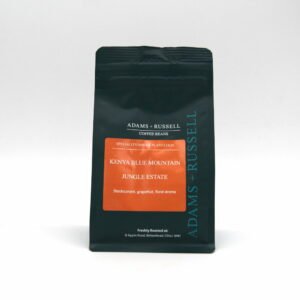Myth Busting: No, your afternoon coffee won’t cause insomnia
- Updated on: March 7, 2024
- Written by: Aimee Bennett
Aimee is a coffee enthusiast and has worked in the coffee industry for years. She sources coffee beans from around the world and her coffee journey began in… (read more).

We’re myth busting. Everything from health misconceptions, to roast profiles and everything in between. Of course, we’re not doctors. However, the health benefits of coffee, especially when drunk black, are very well researched. We hope to educate you from an industry perspective to help you make informed and thoughtful decisions. But before we get going, to address the title of the article – Yes, caffeine is a stimulant, however nearly all (75%) of it is metabolised by the liver within 4 – 7 hours. So your afternoon cup at 3pm will be long gone before bedtime.
Health Benefits: A Reintroduction
If you’re drinking your coffee black or with a splash of milk, your average cup will contain up to 11% of the RDI of Vitamin B2 and 6% of the RDI of Vitamin B5 and it’s also naturally high in antioxidants. Initially this may not seem like a lot, however it can add up quickly when you consider most of us enjoy more than one cup per day. There’s also evidence to support the reduced risk of heart disease and Type 2 diabetes, as well as improved liver function.
What about my blood pressure?
In short, research suggests a temporary increase in blood pressure for up to three hours after consumption. However, if you drink it regularly you build a slight tolerance and the effect is decreased. Current research also suggests that for people with high blood pressure, coffee (if consumed in a moderate manner) is unlikely to have a significant long-term impact on blood pressure or increase your risk of heart disease.
Single origin vs blend: What’s the difference?
There’s a misconception that a blend is a lesser product or lower quality, but that’s simply not true. If each bean in the blend is high quality – then the blend will be high quality. Blends create a harmony between unique levels of acidity, flavour and mouthfeel.
We get the question “which is better?” quite often, this is simply down to personal taste. We love our coffee blends just as much as our single origins / plantations and we believe each has its time and place.
Speaking of harmonious coffee, our Faros Espresso springs to mind. A blend that has recently won a 3 Star Great Taste Award, it offers a smooth and creamy taste that’s perfect for both filter and espresso. Expect notes of chocolate, vanilla and strawberry.
Dark Roasts. They’re a bright idea!
Many people mistake the intense taste of a dark roast to mean it has more caffeine. In general, dark roasts have a stronger and slightly more bitter taste because they’ve been roasted for a longer amount of time at a higher temperature, so you’d naturally assume it is actually stronger. When compared with a light roast, by the cup, the caffeine content in dark roast coffee is more or less equal. Ultimately, it’s best to stop worrying about the caffeine content and go for the roast that you like best.
Does coffee dehydrate you?
The amount of water in each cup offsets the dehydrating effects of the caffeine, it also counts towards your 8 glasses a day. This may sound too good to be true, so here’s a really good podcast that we think is really informative, with some surprising information on hydration, covering coffee and tea consumption along the way. “How much water do you actually need a day” by Dr Jen Gunter (TED, Spotify, Apple)
Should I store my coffee in the fridge?
No. Nor the freezer. Keep it well sealed, at room temperature and away from direct sunlight. It may seem intuitive to prolong its shelf life, however when you put your beans in the freezer the thawing process creates condensation which makes the quality of the bean deteriorate quickly.
Take a look at the Airscape, a handy and inexpensive solution to storing coffee, with a slick design that won’t look out of place on your kitchen counter
“They’re freshly roasted”
This sounds like a good thing; however, it doesn’t result in the best tasting coffee. Part of the roasting process is a period of at least 48 hours known as ‘degassing’. During the roasting a lot of carbon dioxide is built up, these 48hours are crucial for the gas to dissipate. If this step is missed, this can result in a yeasty and woody taste.





